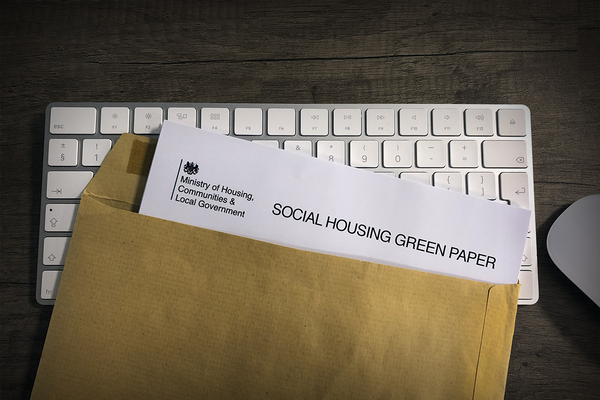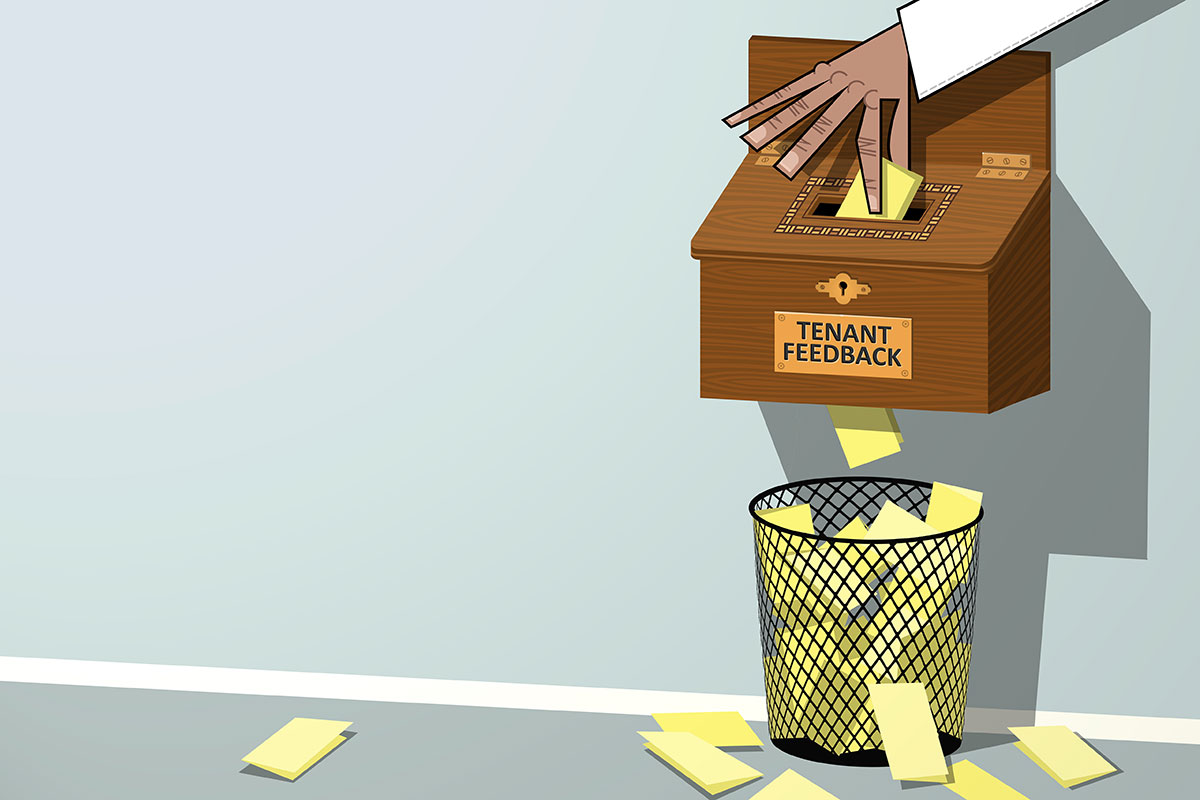You are viewing 1 of your 1 free articles
We need a ‘New Deal’ for tenants, not league tables
A more comprehensive and long-term approach to tenant engagement is needed than the one rumoured to be under consideration by ministers, writes Kevin Gulliver
It’s rumoured that the Social Housing Green Paper, delayed again, will recommend a number of ways, including league tables of social landlord performance, to respond to issues raised by social tenants with government officials in the year-long roadshow on which the green paper is based.
League tables, strengthening of tenant complaints procedures and perhaps a new Tenants’ Voice remain the green paper’s likely proposals to enable tenants to hold their social landlords to greater account.
Yet these approaches sit firmly within the ‘consumerist’ template of scrutiny established by Conservative-led governments since 2010.
And they have been tried before with limited success.
League tables were set up following the 2003 Gershon Review of cost-effectiveness in public services, and the Tenant Services Authority was created in 2008, following a ‘Big Conversation’ with tenants – sound familiar? – then abolished in 2012.
If the rumours of the green paper’s proposals prove to be correct, then it will fall well short of the sorts of innovations that are needed to radically improve social landlord accountability.
What is essential is a far more comprehensive and long-term approach.
We propose a ‘New Deal for Tenants’ that enables social housing to flourish again, and a fundamental shift of power relations between landlords and tenants. There are three aspects to this.
First, social housing has become a residualised tenure; mostly for marginalised households with little choice in the housing market.
“Simply calling tenants ‘customers’ does little to improve their lot, and neither will approaches such as league tables.”
There has been a net ‘loss’ of 1.5 million social rented homes since 1979 – mostly through the Right to Buy. Around two-fifths of sold homes have ended up in the hands of private landlords, with private renting surpassing social renting in recent years after decades of decline. It is now commonly accepted that 90,000+ new social homes are needed annually.
Second, social tenants have become largely identifiable as a ‘precariat class’, as defined by Professor Guy Standing.
The ‘precariat’ is an emergent class of people with little life event predictability, exacerbated by job insecurity, low wages, intermittent employment or under-employment, with few assets to draw upon in times of crisis, high relative debt, reliance on welfare benefits, with low status and generally poor material and psychological well-being.
While social tenants are not a homogenous group, and a minority have higher incomes, professional jobs and good life chances, in broad terms their characteristics are moving ever closer to those of the ‘precariat class’.
Third, precarious living in social housing has been exacerbated by the financial crisis of 2007/08, austerity policies – especially welfare reforms and cuts in housing and local government budgets – and the stigma placed on social tenants by some politicians and the media.
We recommend that these challenges be confronted in concert by recalibrating power relations in social housing, with tenants and communities gaining a greater say in how their housing, estates and neighbourhoods are managed, so boosting the status of social tenants in the housing system.
“We recommend that these challenges be confronted in concert by recalibrating power relations in social housing.”
This can be achieved through rebranding social housing as ‘community housing’; by mutualising the whole sector over time, with elected tenants forming the majority on social landlord boards; and by creating a national Tenants’ Mutual, to which all tenants would have right of membership, to act as both a Tenants’ Voice and a major new funder of social housing and estate regeneration to meet tenants’ priorities.
All social landlords would be required to put forward proposals for mutualising their organisations, guided by a new Community Housing Investment Act.
There are numerous models from which to choose – the community mutuals in Wales, Liverpool and Rochdale; the gateways in Preston and Watford; and the recent move by Soha to introduce a mutual approach to its management.
The national Tenants’ Mutual would oversee the process of effectively transforming all social landlords into tenant cooperatives.
This would not only permanently shift control from social landlords towards communities, but also change the status of social tenants from victims of austerity to overseers of social housing management and investment.
Kevin Gulliver, director, Human City Institute











